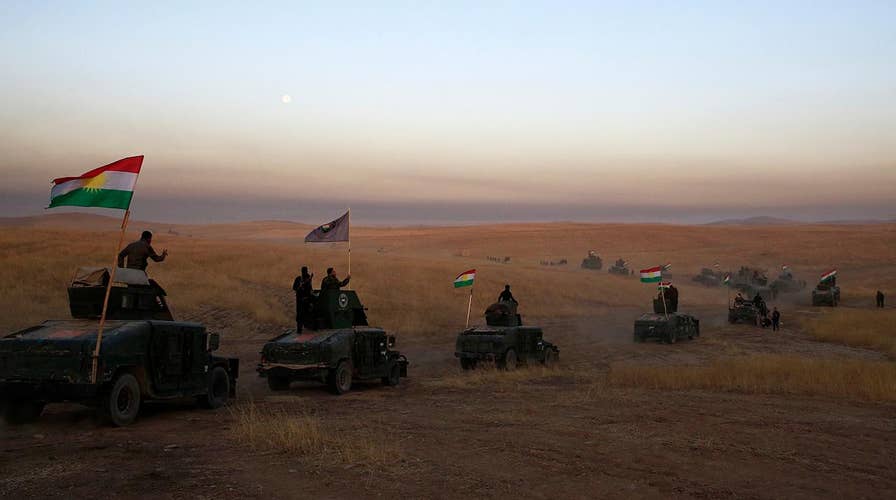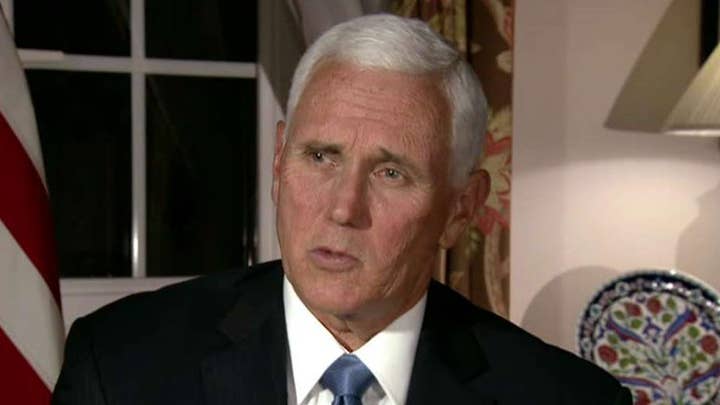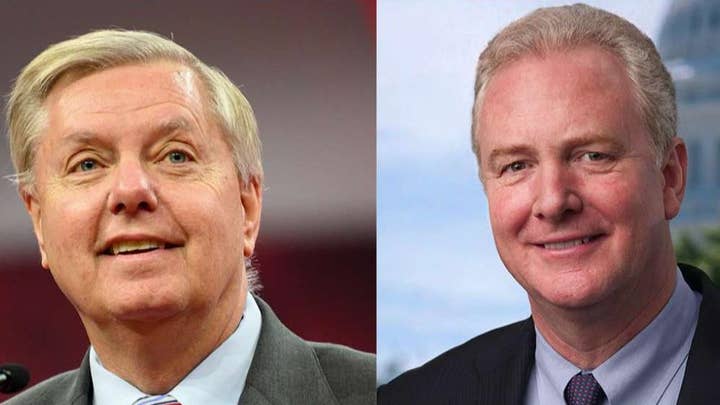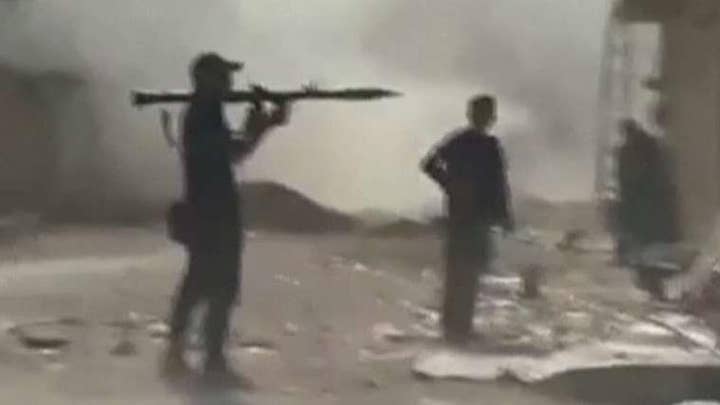Kurds accuse Turkey of violating US-brokered cease-fire
Reports of new fighting in northern Syria hours after Vice President Pence announced a cease-fire; reaction and analysis from Stephen Yates, former deputy national security adviser to Vice President Dick Cheney.
Secretary of State Mike Pompeo on Sunday defended the White House’s decision to withdraw U.S. troops from northern Syria ahead of Turkey’s invasion of the region, as well as the four-day cease-fire between the Kurds and Turkey that he and Vice President Pence negotiated late last week.
“The vice president and I traveled after Turkey made its decision against the president’s desire to make an incursion into Syria,” Pompeo said during an interview on ABC’s “This Week.” “We put out a joint statement which we think will really save lives. It’s worked so far, but there is much work to be done to continue to implement it.”
“We are optimistic," Pompeo said.
ERDOGAN THREW TRUMP'S 'DON'T BE A FOOL' LETTER IN THE TRASH, SOURCES CLAIM
Pompeo and Pence announced Thursday the terms of a four-day cease-fire agreement that would end violence between Turkey and Kurds in Syria, following a meeting with Turkish President Recep Tayyip Erdogan in Ankara.
The deal is for a 120-hour cease-fire, during which time the Kurdish-led forces could pull back from the roughly 20-mile-wide safe zone on the Turkish-Syrian border. All Turkish military operations under the recent offensive known as Operation Peace Spring will pause during that time, and the operation itself will come to an end entirely upon the completion of the Kurdish withdrawal, under the terms of the deal.
Trump ordered the bulk of the approximately 1,000 U.S. troops in Syria to withdraw after Erdogan made it clear in a phone call that his forces were about to invade Syria to push back Kurdish forces, which Turkey considers terrorists.
The pullout largely abandons America's Kurdish allies, who have fought ISIS alongside U.S. troops for several years. Between 200 and 300 U.S. troops will remain at the southern Syrian outpost of Al-Tanf.
Last week, Trump sent a letter to Erdogan encouraging him to “work out a good deal,” threatening to “destroy” the Turkish economy if Erdogan continued his aggression against the Kurds.
In addition to agreeing to the terms of a cease-fire, both the U.S. and Turkey "committed to defeat ISIS activities in northeast Syria," Pence announced during a press conference.
Pompeo on Sunday expanded on the U.S. efforts in the fight against ISIS – repeating administration talking points that the terror group has been largely defeated in the region and arguing that this is the main reason that Trump wants to take troops out of Syria.
“This administration came in and worked seriously alongside the SDF forces and our allies,” Pompeo said. “To build out a counter ISIS coalition and to take down that caliphate
The secretary of state added: “Now the president believes we accomplished a significant part of our mission and he wants our folks to come home and we are beginning to get to work on that this week.”
The U.S. troops who were in Syria, however, will not come directly home but instead U.S. Defense Secretary Mark Esper said over the weekend that under current plans all U.S. troops leaving Syria will go to western Iraq.
Esper, who arrived in the Afghan capital on Sunday, did not rule out the idea that U.S. forces would conduct counterterrorism missions from Iraq into Syria. But he told reporters traveling with him that those details will be worked out over time.
His comments were the first to specifically lay out where American troops will go as they shift from Syria and what the counter-ISIS fight could look like. Esper, who flew overnight to Afghanistan, said he has spoken to his Iraqi counterpart about the plan to shift about 1,000 troops leaving Syria into western Iraq.
The developments made clear that one of President Trump's rationales for withdrawing troops from Syria was not going to come to pass any time soon. "It's time to bring our soldiers back home," Trump said Wednesday. They are not coming home, although Trump tweeted Sunday: "USA soldiers are not in combat or ceasefire zones" and "Bringing soldiers home!"
CLICK HERE TO GET THE FOX NEWS APP
Esper said the troops going into Iraq will have two missions.
"One is to help defend Iraq and two is to perform a counter-ISIS mission as we sort through the next steps," he said. "Things could change between now and whenever we complete the withdrawal, but that's the game plan right now."
The U.S. currently has more than 5,000 American forces in Iraq, under an agreement between the two countries. The U.S. pulled its troops out of Iraq in 2011 when combat operations there ended, but they went back in after ISIS began to take over large swaths of the country in 2014. The number of American forces in Iraq has remained small due to political sensitivities in the country, after years of what some Iraqis consider U.S. occupation during the war that began in 2003.
Fox News’ Ronn Blitzer and The Associated Press contributed to this report.








